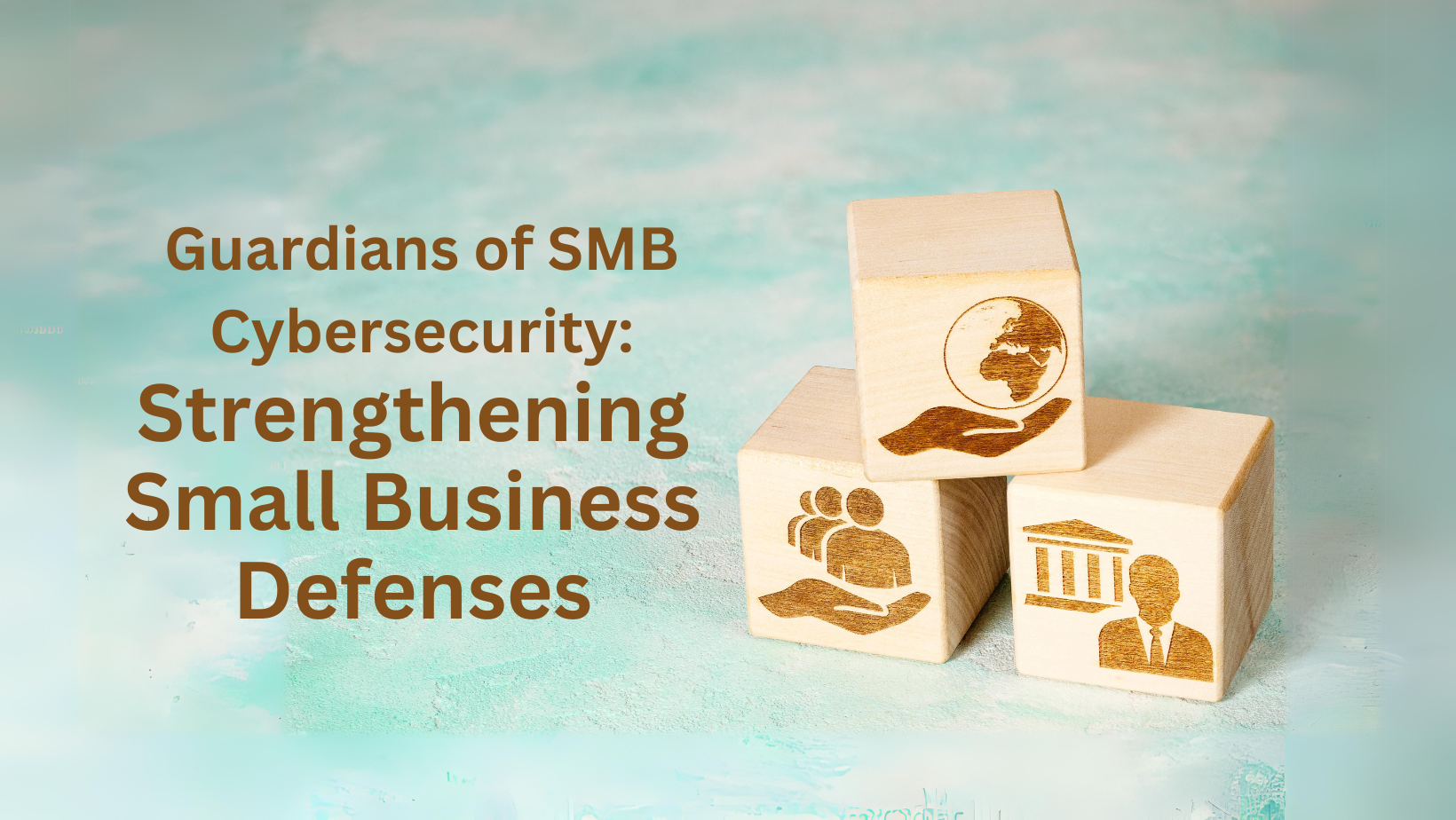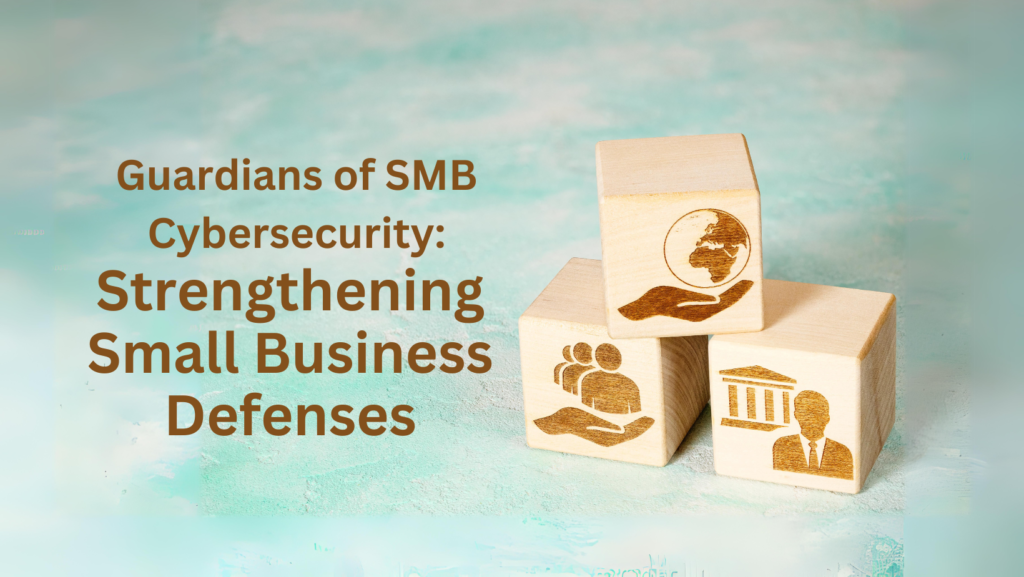Add Your Heading Text Here

The Cybersecurity Maturity Model Certification (CMMC) is reshaping the cybersecurity landscape for organizations working with the U.S. Department of Defense (DoD). While full CMMC implementation may take time, there are steps you can take today to set the stage for success. In this blog post, we’ll explore what you can do now to prepare for CMMC, ensuring that your organization is well-equipped to meet the challenges of this new cybersecurity standard.
1. Understand the CMMC Framework
What is CMMC? The Cybersecurity Maturity Model Certification is a standard designed to assess the cybersecurity capabilities of defense contractors. It introduces a tiered model with three distinct maturity levels, each with its own set of practices and processes.
How to Get Started:
- Study the CMMC Model: Begin with the CMMC 2.0 Model documentation to understand its structure. Each maturity level represents increasing degrees of cybersecurity rigor.
- Familiarize Yourself with Domains and Capabilities: The framework is organized into 17 domains, such as Access Control and Incident Response, with specific capabilities at each level. For instance, Level 1 focuses on basic cybersecurity hygiene, while Level 3 emphasizes advanced practices.
- Review CMMC Guidelines: Read the CMMC 2 Practice Guides for a detailed understanding of requirements.
Pro Tip: Join a CMMC group or attend webinars. The CMMC AB often hosts events and provides resources to help organizations understand the model.
2. Assess Your Current State
Conducting a Self-Assessment:
Cybersecurity Policies:
- Current State: Are your policies documented and comprehensive?
- Future State: Ensure your policies cover all CMMC domains and are up-to-date. Review the National Institute of Standards and Technology (NIST) Cybersecurity Framework for reference.
Security Controls:
- Current State: How do you currently manage access, monitoring, and data protection?
- Future State: Identify gaps and start addressing them. Use tools to benchmark your current security posture.
Incident Response Plans:
- Current State: Do you have a documented and tested incident response plan?
- Future State: Review your incident response plan against the NIST SP 800-61 standards for incident handling.
Data Protection:
- Current State: How is sensitive data stored, processed, and protected?
- Future State: Ensure you have encryption, access controls, and regular audits in place.
Pro Tip: Use a gap analysis tool to document your current state versus CMMC requirements, which will help in formulating an improvement plan.
3. Identify Key Stakeholders
Who to Involve:
- Chief Information Security Officer (CISO): Leads the CMMC compliance efforts and ensures alignment with organizational goals.
- IT and Security Teams: Responsible for implementing technical controls and policies.
- External Consultants (C3PAOs): Engage with Certified Third-Party Assessment Organizations for official assessments and guidance.
Action Steps:
- Establish Roles and Responsibilities: Define who will handle specific CMMC practices and processes.
- Create a CMMC Task Force: Form a team with representatives from key departments to ensure comprehensive planning and execution.
Pro Tip: Consider hiring a consultant with experience in CMMC assessments to provide insights and facilitate the process.
4. Begin Training and Education
Training Resources:
- CMMC-Specific Training: Look for CMMC-AB accredited training programs.
- General Cybersecurity Awareness: Offer training on topics like phishing, password management, and data protection.
- Specialized IT and Security Training: Invest in advanced training for your IT and security teams to understand complex cybersecurity concepts.
Action Steps:
- Create a Training Plan: Outline mandatory training sessions, certifications, and continuing education requirements.
- Evaluate Training Programs: Choose programs that are accredited and offer certifications recognized in the industry.
Pro Tip: Regularly update training materials to reflect the latest cybersecurity trends and CMMC updates.
5. Develop an Implementation Plan
Creating a Strategic Plan:
- Define Goals and Objectives: Set clear, achievable goals based on the CMMC level you are targeting.
- Develop a Roadmap: Outline key milestones, timelines, and resource allocations.
- Allocate Resources: Budget for tools, training, and external support.
Action Steps:
- Develop a Project Plan: Use project management tools to manage tasks and track progress.
- Set Up a Timeline: Create a Gantt chart to visualize tasks and deadlines.
Pro Tip: Regularly review and adjust the implementation plan based on progress and any new developments in CMMC requirements.
6. Map Out Budget and Resources
Financial Planning:
- Identify Costs: Include costs for technology upgrades, staff training, and consulting services.
- Create a Budget: Allocate funds for each phase of the CMMC compliance process.
Action Steps:
- Prepare a Budget Proposal: Detail costs for each component of the compliance effort.
- Monitor Expenses: Track spending and adjust as necessary to stay within budget.
Pro Tip: Consider potential funding opportunities or grants for cybersecurity improvements.
7. Establish a Security Culture
Building a Security-Conscious Organization:
- Promote Awareness: Regularly communicate the importance of cybersecurity and CMMC compliance.
- Encourage Best Practices: Foster an environment where employees are proactive about security.
Action Steps:
- Implement Security Initiatives: Organize workshops, seminars, and security drills.
- Recognize Contributions: Reward employees who demonstrate strong security practices.
Pro Tip: Create a security champions program where enthusiastic employees can advocate for best practices within their teams.
8. Stay Informed and Adapt
Keeping Up with Changes:
- Subscribe to Updates: Follow CMMC-AB for the latest news and updates.
- Attend Industry Events: Engage with the cybersecurity community through conferences and forums.
Action Steps:
- Join Professional Associations: Engage with organizations like ISACA or (ISC)² for ongoing education and networking.
- Monitor Cybersecurity Trends: Use resources like SANS Institute on Security for the latest security information.
Pro Tip: Establish a regular review schedule for your compliance strategies to integrate new best practices and standards.
9. Engage with CMMC Experts
Finding the Right Help:
- Seek Qualified Consultants: Look for consultants or firms with experience in CMMC compliance.
- Work with C3PAOs: Engage Certified Third-Party Assessment Organizations for formal assessments.
Action Steps:
- Research and Select Experts: Choose firms or individuals with a track record of successful CMMC compliance projects.
- Establish Clear Contracts: Define the scope of work and expectations in contracts with consultants.
Pro Tip: Ask for references and review case studies from other organizations that have successfully achieved CMMC certification.
10. Build CMMC Documentation Practices
Documenting Your Efforts:
- Develop Documentation Standards: Create and maintain comprehensive records of your cybersecurity practices.
- Ensure Consistency: Implement a standardized approach for documenting policies, procedures, and incidents.
Action Steps:
- Establish Documentation Procedures: Create templates for policies and incident reports.
- Regularly Review Documentation: Schedule periodic reviews to ensure accuracy and completeness.
Pro Tip: Use document management systems like SharePoint to keep documents organized and accessible.
Conclusion
Preparing for CMMC is more than just a compliance checklist—it’s about strengthening your organization’s cybersecurity resilience. By taking these proactive steps, you not only prepare for future requirements but also enhance your overall security posture. Start today to make your CMMC compliance journey a successful one. Embrace the challenge with a strategic mindset and be ready to navigate the evolving landscape of cybersecurity.
Provincia Government Solutions, LLC is a Nashville-based security and risk assurance firm specializing in government regulatory and compliance cybersecurity requirements. Our expertise encompasses a wide range of standards, including NIST, FISMA, CMMC, SCA, 800-171, TRICARE, MARS-E, and Zero Trust Architecture (ZTA) solutions.
Our client base comprises government agencies, contractors, and commercial organizations affiliated with government entities. Whether you require audit preparedness, compliance and assurance assessments, security consulting, or CMMC certification, we have the knowledge and experience to assist you.
For a no-cost consultation, please don’t hesitate to contact us at (615) 807-2822 or via email at info@provincia.io. We look forward to discussing your security needs and finding solutions tailored to your specific requirements.
Related Articles:
Subscribe to Our Blog
ABOUT US
Provincia Government Solutions is a SBA certified Small Business cybersecurity assurance firm and a CMMC Certified Third Party Assessment Organization (C3PAO). We were the first organization to become a C3PAO in the Middle Tennessee (Nashville) area and provide a full range of services including CMMC consulting and certification assessments. Our assessment team is trained in CMMC and other government assessment disciplines and we are experienced working with organizations of all sizes. Please reach out with any cybersecurity or CMMC related inquiries. We look forward to speaking with you!
Contact Information
-
P.O. Box 1685 Spring Hill, TN 37174
United States - +1 (615) 807-2822 | info@provincia.io







